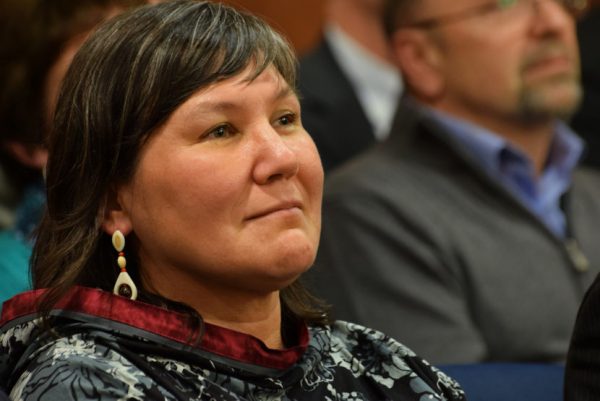
Alaska lawmakers learned more on Tuesday about how tribal compacting has worked in the state.
Alaska Native compacting experts talked at a legislative hearing in Anchorage about the benefits of compacting.
Compacts are agreements between different governments, like between the state or federal governments and tribal organizations, to provide services. Gov. Mike Dunleavy has said he wants to have compacts with tribes that cover public education, but his administration hasn’t spelled out the details.
Melanie Bahnke, president and CEO of Bering Strait regional tribal consortium Kawerak Inc., said tribes educated community members before the state imposed a system.
“The systems have not been designed by us,” she said. “They’re not run by us. And they’re not designed for us.”
Related: Dunleavy pursuing educational compact with Alaska tribes
Bahnke said education compacting could allow tribal organizations to design curriculum and teaching methods that will serve their communities. Her organization provides Head Start and adult basic education, as well as other services.
Former state Health Commissioner Valerie Nurr’araaluk Davidson said compacting has led to improved services in areas like health care.
“In every program in which a tribe or tribal organization has assumed services that were previously provided by someone external to that community, we have seen improvement,” said Davidson, who also briefly served as lieutenant governor.
But experts said the details of what the administration proposes will be important.
Natasha Singh, the general counsel of the Tanana Chiefs Conference, noted that the Indian Health Service turned over nearly all of its health care funding to tribal organizations in a compact.
“If the state of Alaska thinks that it can turn over the responsibilities of the education system without the proper authority and funding to go along with it, we will not be successful,” she said.
The state Department of Education and Early Development has said education compacting could start with a pilot program and expand from there.
Andrew Kitchenman is the state government and politics reporter for Alaska Public Media and KTOO in Juneau. Reach him at akitchenman@alaskapublic.org.




